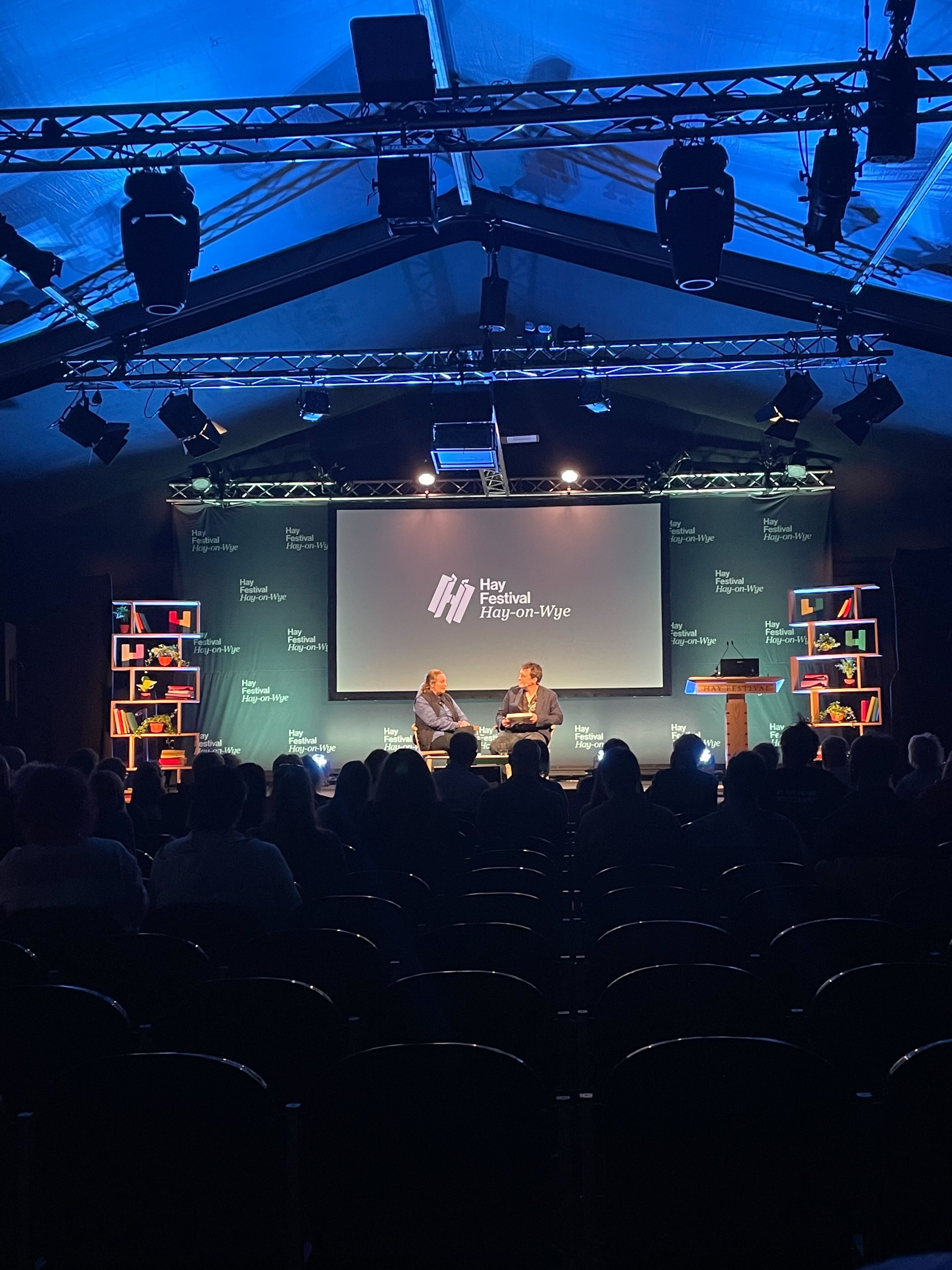It had been a 12-month-long whirlwind romance that ended amicably, but little did Kate Wilson know a phone call six years on would change her life forever.
Ms Wilson was in her mid-twenties when she met a man she believed was Mark Stone at an activist meeting in Nottingham in 2003.
The pair hit it off and began a romance which lasted over a year – but it was all a lie.
Mark Stone’s real name was actually Mark Kennedy. He was an undercover police officer sent by the now-disbanded National Public Order Intelligence Unit to spy on an activist group Ms Wilson was associated with in the early 2000s.
Speaking at Wales’ Hay Festival, with which The Independent has partnered again, Ms Wilson described the impact of the immense invasion of privacy and her fight for justice.
“I met Mark at the end of 2003, after he had shown up in the summer and befriended some of my friends who were living in Nottingham,” she said.
“We had an awful lot in common. He even liked country music, which was pretty much unheard of in the circles I was in. He said he was from Battersea and from a broken home.
“He used to get emotional, saying how his mother had brought up two sons on her own. But none of it was true.”
After the relationship ended, the pair kept in touch, with Kennedy visiting Ms Wilson abroad in Barcelona and Berlin.
They remained friends until years later, when she got a phone call from another woman Kennedy had been in a relationship with for six years, telling her that he was an undercover police officer the entire time.
“We were really close friends right until I got the phone call. A friend of mine said, ‘Mark’s a cop, we’ve got the proof and we’re going public and I don’t want you to find out from the internet’,” she said.
Kennedy, who resigned from the Met in 2010, had sexual relationships with as many as 10 other women while he was undercover.
Ms Wilson’s revelation led to legal action against the Met and the National Police Chiefs’ Council (NPCC), both of which have admitted to a number of breaches of Ms Wilson’s human rights and subsequently apologised for the “hurt and damage” the intelligence operation caused.
In 2021, the Investigatory Powers Tribunal ordered the Met Police and NPCC to pay a total of £229,471 to Ms Wilson “by way of just satisfaction for the breaches of her human rights”.

She is one of 60 victims of the “spycops” scandal. Taking place from 1968 to at least 2010, the operation is now the subject of a decade-long public inquiry that has already cost £88m and is due to conclude in 2026.
“There is a fundamental problem with secret policing,” Ms Wilson told an audience at the culture and arts festival. “There’s an institutional problem with the fact there’s no accountability, but there’s also a personal problem when you take these individuals, who are mostly men, and you take them out of all of the normal social controls that make people behave decently.
“They give them new names, they give them a mask, they tell them no one will ever find out who they were or what they did.
“You remove them from their families and give them a whole bunch of power over a group of people – and horrific things happen.”
Ms Wilson sat down to discuss her ordeal with investigative journalist Oliver Bullough in a wide-ranging talk at Hay Festival about her new book, Disclosure: Unravelling the Spycops File.
“I’m doing alright now, but there was some very dark moments,” she said. “When it first happened, I believed that not trusting was a good thing. I thought I had been really naive, and trusting was a bad thing. I kind of wore my distrust like a badge of honour.
“I think one of the most important things to me about rebuilding trust is realising that you can’t have a community without trust, and actually working to rebuild that stuff because it’s such an important part of what we do.”
Addressing Ms Wilson’s case previously, Helen Ball, the Met’s then-assistant commissioner for professionalism, said: “It is important to note that since Mark Kennedy’s deployment there has been enormous change in undercover policing, both in the Met and nationally, and I want to be clear that this case in no way reflects modern-day undercover policing.”
Chief Constable Alan Pughsley, the NPCC’s lead for undercover policing, also commented on the “significant changes” to the way undercover policing is conducted.
“The selection and training of all undercover officers have been standardised and is licensed by the independent body, the College of Policing,” he said.
‘Disclosure: Unravelling the Spycops Files’ by Kate Wilson is published by Weidenfeld & Nicolson on 29 May
The Independent has partnered with the Hay Festival once again to host a series of morning panels, ‘The News Review’, where our journalists will explore current affairs with leading figures from politics, science, the arts and comedy every morning.
Naga Munchetty: My first period made me faint - but doctors said it was normal
PM ‘trying to fix the wings of an airplane already in flight’, political adviser says
God saved Trump to give Europe last chance, says Albanian PM
easyJet flight to UK diverts after woman ‘screams and grabs emergency exit’
Leopard-hunting holiday packages being sold for up to £116,000
Revealed: The true cost of climate crisis for world’s poorest countries







